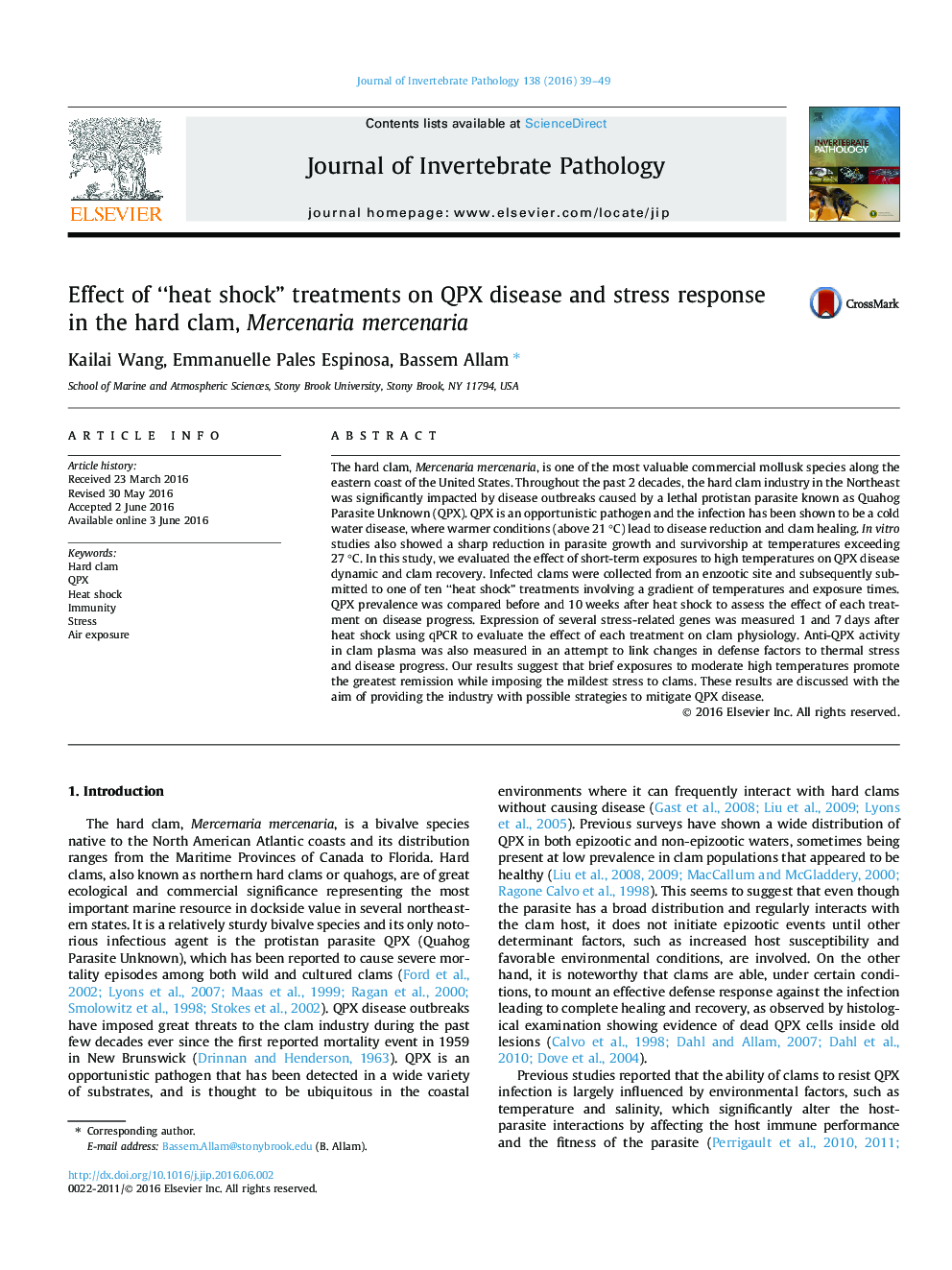| کد مقاله | کد نشریه | سال انتشار | مقاله انگلیسی | نسخه تمام متن |
|---|---|---|---|---|
| 4557497 | 1628214 | 2016 | 11 صفحه PDF | دانلود رایگان |

• The effect of heat shocks on QPX disease and clam physiology were assessed.
• Brief exposures to moderately elevated temperatures promoted the greatest disease remission.
• Extreme temperatures and long exposure times caused acute stress and did not improve disease status.
• The heat shock procedure has potential as a mitigation strategy for QPX disease.
The hard clam, Mercenaria mercenaria, is one of the most valuable commercial mollusk species along the eastern coast of the United States. Throughout the past 2 decades, the hard clam industry in the Northeast was significantly impacted by disease outbreaks caused by a lethal protistan parasite known as Quahog Parasite Unknown (QPX). QPX is an opportunistic pathogen and the infection has been shown to be a cold water disease, where warmer conditions (above 21 °C) lead to disease reduction and clam healing. In vitro studies also showed a sharp reduction in parasite growth and survivorship at temperatures exceeding 27 °C. In this study, we evaluated the effect of short-term exposures to high temperatures on QPX disease dynamic and clam recovery. Infected clams were collected from an enzootic site and subsequently submitted to one of ten “heat shock” treatments involving a gradient of temperatures and exposure times. QPX prevalence was compared before and 10 weeks after heat shock to assess the effect of each treatment on disease progress. Expression of several stress-related genes was measured 1 and 7 days after heat shock using qPCR to evaluate the effect of each treatment on clam physiology. Anti-QPX activity in clam plasma was also measured in an attempt to link changes in defense factors to thermal stress and disease progress. Our results suggest that brief exposures to moderate high temperatures promote the greatest remission while imposing the mildest stress to clams. These results are discussed with the aim of providing the industry with possible strategies to mitigate QPX disease.
Figure optionsDownload as PowerPoint slide
Journal: Journal of Invertebrate Pathology - Volume 138, July 2016, Pages 39–49